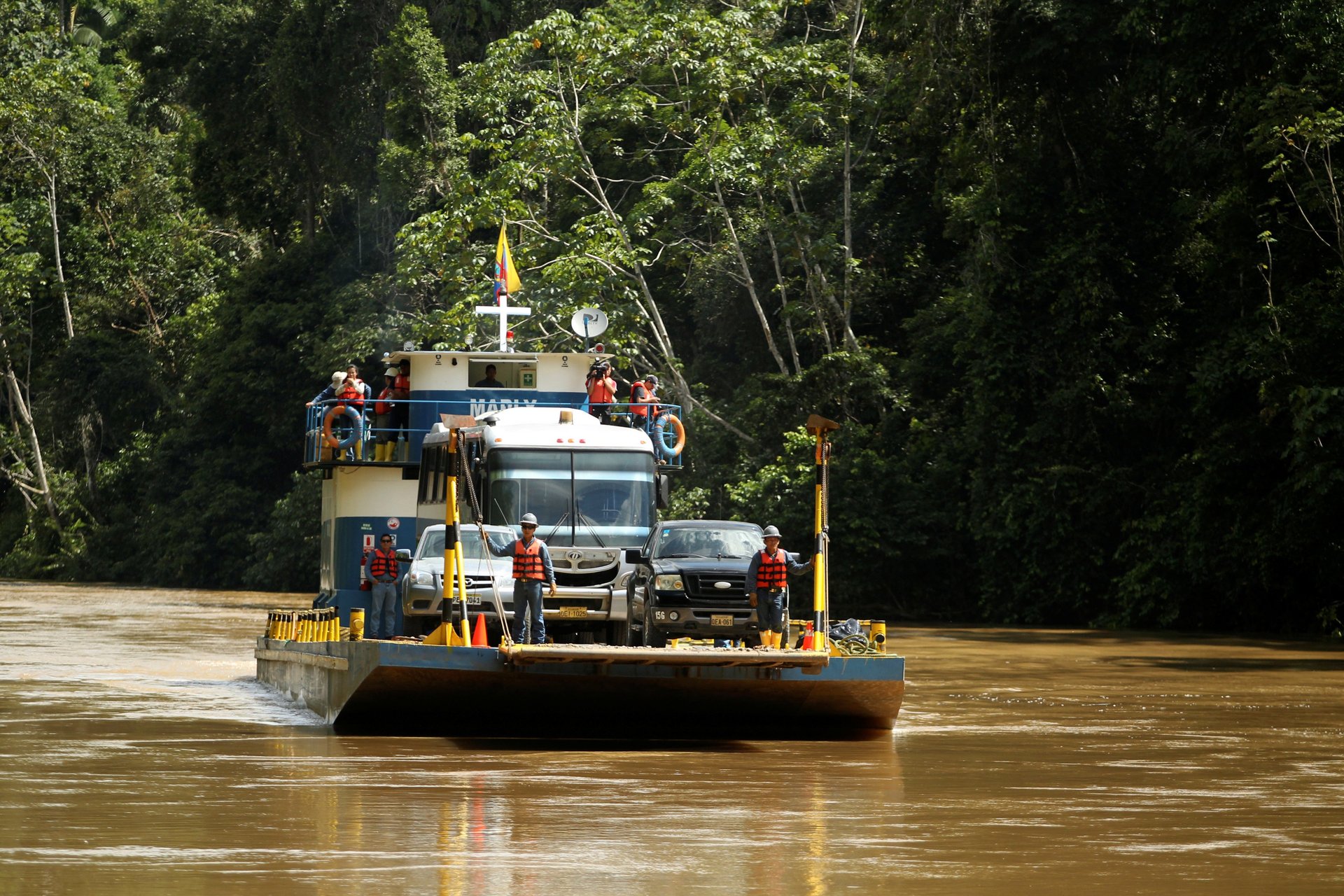Ecuador voted to ban oil drilling at a major site in the Amazon
The ballot referendum took place alongside the country's presidential contest

In a referendum added to the ballot for their presidential election, Ecuadoreans voted to ban oil drilling in a sizable region of the Amazon rainforest.
Suggested Reading
The ban passed easily—with nearly two-thirds support—in a win for the country’s indigenous and environmental activists, according to the National Electoral Council of Ecuador. It will also prevent mining in a major forest near Quito, the nation’s capital.
Related Content
The new policy stops drilling in Yasuní National Park, a conservation site spanning 2.5 million acres of the Amazon that contains Ecuador’s largest reserves of crude oil. The park is also home to several indigenous tribes, including the Tagaeri, who live in voluntary isolation from population centers.
YASunidos, an environmental organization behind the ballot initiative, celebrated the news on Twitter.
“This consultation, born from the citizenry, demonstrates the greatest national consensus in Ecuador,” the group wrote. “It is the first time that a country decides to defend life and leave oil underground.”
The ban is expected to eventually reduce Ecuador’s daily oil output by 12%, according to state-owned oil company Petroecuador.
Last week, the Central Bank of Ecuador forecasted this reduction would shrink national economic growth by a total of 1.9% through 2026, while the country’s energy minister predicted the ban could mean the loss of $1.2 billion in oil income each year.
Quotable: Ecuador’s top presidential candidate supports the oil drilling ban
“Why don’t you ask the countries that pollute the most to put the $1.2 billion in a trust for us? —Luisa González, the top vote-getter in the presidential election, rebuking the current government’s critique of the ban
Yasuní’s political history: Development versus conservation
Hailed as the “most biodiverse place in the world,” Yasuní National Park has more tree species in a single acre than all of the US and Canada and more animal species than all of Europe. In recent decades, it’s also become a symbol of Ecuador’s attempt to balance economic development with its fight against climate change.
In 2007, at the United Nations general assembly, then-president Rafael Correa tried to have it both ways by suggesting that rich countries—which are responsible for 79% of historical carbon emissions—pay the people of Ecuador $3.6 billion to keep the park’s oil in the ground. (Although that’s a large sum, it’s less than half of what the state-owned oil company would have made selling the oil at 2007 prices.)
The idea was to conserve the park without forgoing the potential economic stimulus. Despite early support from celebrities like Leonardo DiCaprio, the plan failed. Six years later, only $336 million had been pledged by the international community, with just $13.3 million actually delivered.
So near the end of Correa’s term, the government announced it would start drilling in an area of Yasuní known as Block 43, which makes up less than 0.1% of the park’s total area. Starting at 23,000 barrels of oil per day (bpd), the project grew to produce 55,000 bpd.
Now, more than 15 years after Correa’s initial proposal, Yasuní National Park will be safe from future oil drilling. Ultimately, that achievement came from grassroots organizing and, notably, without any economic help from the world’s biggest carbon emitters.
Related stories:
🌳 Brazil is hosting the Amazon nations in a bid to save the world’s largest rainforest
